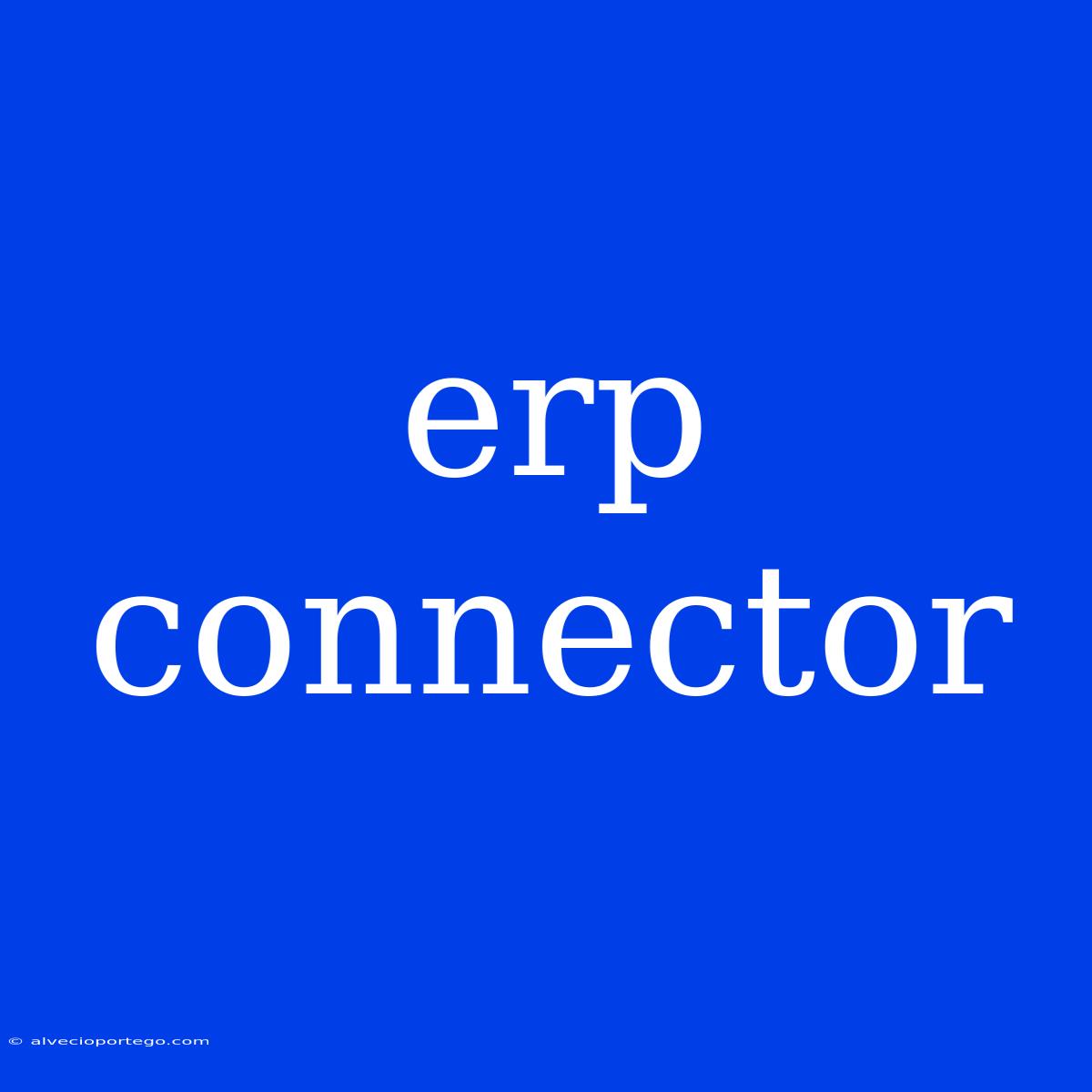ERP Connector: Bridging the Gap Between Your Systems
In today's digitally-driven business landscape, seamless data flow is paramount. Organizations rely on various software solutions for different business functions, but often face the challenge of integrating these systems. This is where ERP Connectors come in, acting as vital bridges between your enterprise resource planning (ERP) system and other critical applications.
What is an ERP Connector?
An ERP Connector is a software component designed to facilitate the exchange of data between your ERP system and other applications, such as:
- Customer Relationship Management (CRM): Sync customer data, sales orders, and service tickets between your CRM and ERP.
- E-commerce Platforms: Streamline order fulfillment by connecting your online store to your ERP for inventory management and order processing.
- Accounting Software: Automate financial data reconciliation and reporting by connecting your ERP with your accounting system.
- Warehouse Management Systems (WMS): Optimize your supply chain by synchronizing inventory levels, orders, and shipments between your ERP and WMS.
- Business Intelligence (BI) Tools: Gain valuable insights from your ERP data by integrating it with BI tools for data analysis and reporting.
Benefits of Using an ERP Connector
Implementing an ERP connector offers several advantages:
- Improved Data Accuracy: Eliminating manual data entry minimizes errors and ensures consistency across systems.
- Enhanced Efficiency: Automating data transfers frees up valuable time and resources, allowing employees to focus on more strategic tasks.
- Streamlined Operations: Seamless data flow across applications improves internal processes and decision-making.
- Increased Visibility: Access real-time data from all your systems to gain a comprehensive view of your business operations.
- Reduced Costs: By automating manual processes and minimizing errors, ERP connectors can significantly reduce operating costs.
Types of ERP Connectors
There are various types of ERP connectors available, each with unique features and capabilities:
- Pre-built Connectors: These are ready-made connectors designed for specific ERP systems and applications, offering a quick and cost-effective solution.
- Custom Connectors: For complex integration needs, custom connectors can be developed to meet specific business requirements.
- Cloud-based Connectors: These connectors reside in the cloud and facilitate data exchange between cloud-based applications and your on-premise ERP system.
Choosing the Right ERP Connector
Selecting the best ERP connector for your organization depends on several factors:
- Your ERP System: The connector must be compatible with your existing ERP software.
- Target Applications: Consider the applications you need to integrate with your ERP system.
- Data Integration Requirements: Determine the type and volume of data you need to transfer between systems.
- Budget and Resources: Evaluate the cost of the connector, as well as the time and effort required for implementation.
Conclusion
ERP connectors are essential tools for modern businesses seeking to optimize their operations and gain a competitive edge. By bridging the gap between your ERP system and other critical applications, they enable seamless data flow, enhanced efficiency, and improved decision-making. Carefully evaluate your needs and choose the right ERP connector to unlock the full potential of your business systems.

